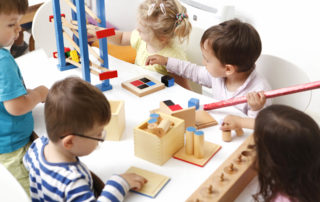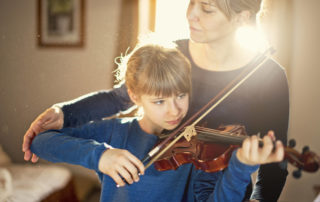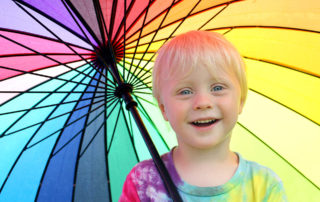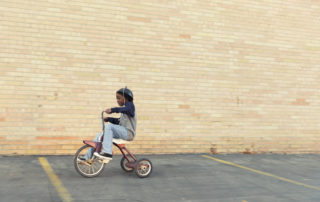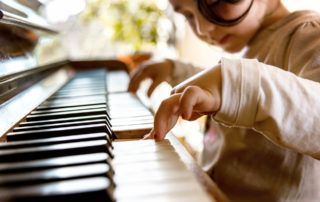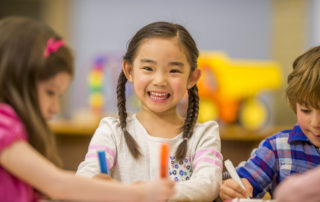Maria Montessori International Academy
Latest News, Events, and Articles
Latest News, Events, and Articles
How a Montessori education helps your child learn to concentrate
By Vivian Cain You may have noticed that both children and adults tend to move from one activity to another quickly. In the digital age, it’s becoming increasingly difficult to focus. A study by Microsoft Corporation recently revealed that many of us struggle to concentrate on any given activity for more than 8 seconds. Just 10 years ago, our ability to focus was rated at an average of about 12 seconds. Obviously, the situation is getting a bit worse. However, studies also show that focus and concentration are essential to succeeding in life, whether you’re engaging in conversation, performing well in school and work, or excelling in sports. Jumping from one thing to the next can hinder your child’s ability to retain what she’s learned. Concentration can be a difficult concept for a child to grasp at any age. At Maria Montessori International Academy, we have observed how the ideal
4 reasons why music is critical to your child’s development
By Vivian Cain Music is essential to your child’s development, as Dr. Maria Montessori discovered many years ago when developing the Montessori curriculum. Music helps children develop skills in communication and self-expression. It brings joy to the Montessori classroom and is instrumental in developing a child’s basic math and literacy performance. Best of all, children of any age and at any level can benefit from music in the classroom. At Maria Montessori International Academy, we offer musical education for every age for those and many more reasons. Here are a few ways music education plays a part in MMIA’s programs for any age. Music enhances a child’s brain development. Dr. Maria Montessori’s approach begins with recognizing your child’s sensation development periods and introducing experiences that coincide with them. During your child’s first three years, music helps build connections between brain cells that boost your child’s cognitive development. Music helps children
August 7 – 11 Tie-dye Week:
By Vivian Cain Watch your child's face light up when you remove that first rubber band from their tie-dyed T-shirt. It is truly amazing the designs that one can create with so few tools. See what rubber bands, marbles, crumbling, scrunching or twisting the fabric can do to create unique patterns and spirals!! Contact us with any questions or additional information.
July 31 – Aug. 4: Trikes and Bikes and Obstacle Course:
By Vivian Cain Put on those helmets and bring your bikes or trikes to school! Race and dash through creative and fun obstacle courses to make your way through cones, laundry baskets, car washes, and tires, etc. What a fun way to great exercise! Contact us for any questions or additional information.
July 17 – 28: Spanish Immersion:
By Vivian Cain Enjoy summertime fun through a two-week Spanish-filled cultural excursion. Lango campers spend each week immersed in an exciting part of the Latin American world. They include: Welcome to the Latin Kitchen: the Delectable recipe! YUM! Students will learn to make Hispanic dishes from scratch where the student will perform all the food prep from dicing, blending, grating and mixing to create delectable eats from Latin America to create tropical salads to Yucca Chip with homemade avocado dressing for dipping to Morir Sonando Tropical drinks, Lucy Lime Fizz and Coconut Lime Pie Shake. Delectable treats indeed! Language: Students will learn the Montessori Curriculum in Spanish along with Spanish books, music, and puppets to enhance the curriculum. Dance: Students will dress in authentic costumes to learn the Meringue Dance of the Dominican Republic, which will culminate in a dance performance for the parents. Cultural Outing: After a dance performance, parents and students
July 10 -14: School Open:
Wraparound Care – Teacher Music Training
Comparing Preschool Philosophies: Montessori, Waldorf and More
By Laura Lewis Brown Published by PBS Kids As you search for the best preschool for your child you’ll need to consider the school’s philosophy or approach. Learn about the most prevalent preschool philosophies to help you choose a school that meets your child’s needs. Montessori Philosophy This approach, developed by Maria Montessori in Rome in the early 1900s, is child-centered, with teachers serving as guides. In the Montessori school, play is a child’s work, says Wana. While there is a focus on academics, the distinguishing feature is that children learn at their own pace. There are special Montessori toys called manipulatives that are self-corrective; this means that a child knows if they assembled a puzzle correctly, for example, based on the toy fitting together, not because someone showed the child how to do it. “In Montessori programs it’s really the teacher’s job to help the kids find their way into the
Becoming a Montessori Parent
by Edward Fidellow There are seven simple steps to becoming a Montessori parent. When we say simple we don’t mean that they are not challenging. It is a lot like the definition of bull riding. “The object is to keep the bull between you and the ground.” Simple – but challenging. The first step to becoming a Montessori parent took place when you enrolled your child in a Montessori program. That in itself is a challenge. Most of us weren’t raised in a Montessori school. The whole concept is foreign and takes a bit of courage to step out of the norm and our comfort zone. We may have chosen the program because it wasn’t like our school experience (which is why we chose it.) Or we chose it because we saw something unique in a Montessori child we knew. Or we were just plain lucky and stumbled on to


